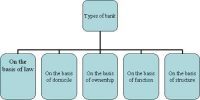General Effects of Technology on Human Life
When technology is, applied by, business or any other institution, its effects are frequently widespread they reach far beyond the point of immediate impact of the technology, and they have both desirable and undesirable results like dominant climate becomes one of hanged and then more change. In a dynamic society, technology operates as a multiplier, not as an additive, because it acts as a system relationship with other parts of society.
(a) Effects of technology are pervasive
The effects of technology are that things can happen faster in the world. Transactions can happen quickly over the internet. News travels around the world about events from the farthest comers. People can band together for a cause worldwide. When technology is applied by business or any other institution, its effects are frequently widespread and they have both desirable and undesirable results.
(b) Higher Productivity
Technology is the systems of know-how, methods, and capital equipment that are used in production at the economic output. The technology differs from science in that science is an understanding of natural principles.
Technology does not necessarily imply knowledge of why a process works, but what works and sometimes, what does not. Changes in technology are the only source of permanent increases in productivity, but a number of transient factors can affect both true and ‘measured’ productivity. For example, workers may work harder during periods of high demand and firms may use their capital assets more intensively by running factories for extra shifts; both factors can lead measured productivity to be too high relative to actual technological progress. Similarly, during periods of high demand, productivity can rise because firms take advantage of increasing returns to scale.
(c) System complexity
An evident effect of technology is complex. The modem washing machine does a better job has the old washboard and tub, but when it breaks down it requires a specialist for repairs. The study of technology is itself a complex issue. First, contrary to biological species technologies are not given in nature, but man-made constructs, they are the products of Cultural Revolution. The various factors involved may use different definitions of technology. Furthermore, technologies are continuously evolving. With the further development of technologies, their definitions and relevant perspectives may also have to change. These definitions and perspectives, however, are basic to the discursive traditions studying technology and its relevant contexts.
(d) Upgraded job skills
With the advance of technology, jobs tend to become more intellectual otherwise upgraded. The job that once required a day laborer now requires a skilled crane man and the job that formally required a clerk now requires a skilled expert.
(e) More scientific and professional workers
The Professional, Scientific and Technical Services sector comprises establishments that specialize in performing professional, scientific, and technical activities for others. These activities require a high degree of expertise and training. The establishments in this sector specialize according to expertise and provide these services to clients in a variety of industries and, in some cases, to households. Activities performed include legal advice and representation; accounting, bookkeeping, and payroll services, architectural, engineering, and specialized design services, computer services, consulting services, research services, advertising services, photographic services, translation and interpretation services and other professionals, scientific, and technical services.
(f) More emphasis on Research and Development
Effective management of R&D is an important business responsibility became R&D brings social benefits through increased productivity. The research and development is a specific group of activities within a business. The activities that are classified as R&D differ from company to company, but there are two primary models. In one model, the primary function of an R&D group is to develop new products; in the other model, the primary function of an R&D group is to discover and create new knowledge about scientific and technological topics for the purpose of uncovering and enabling development at valuable new products and services.
















